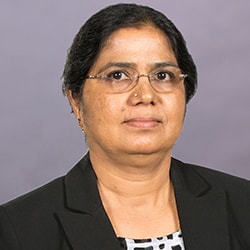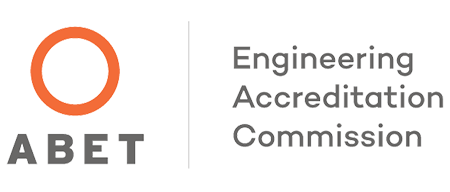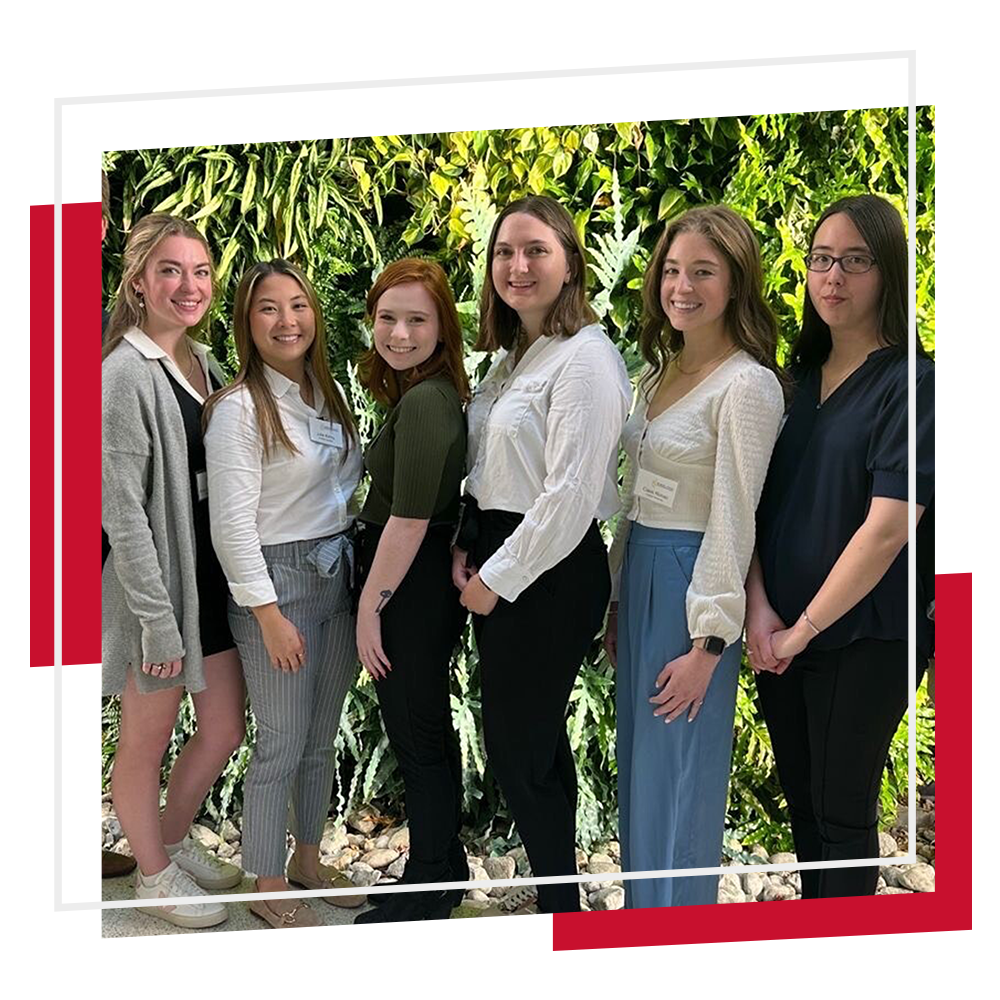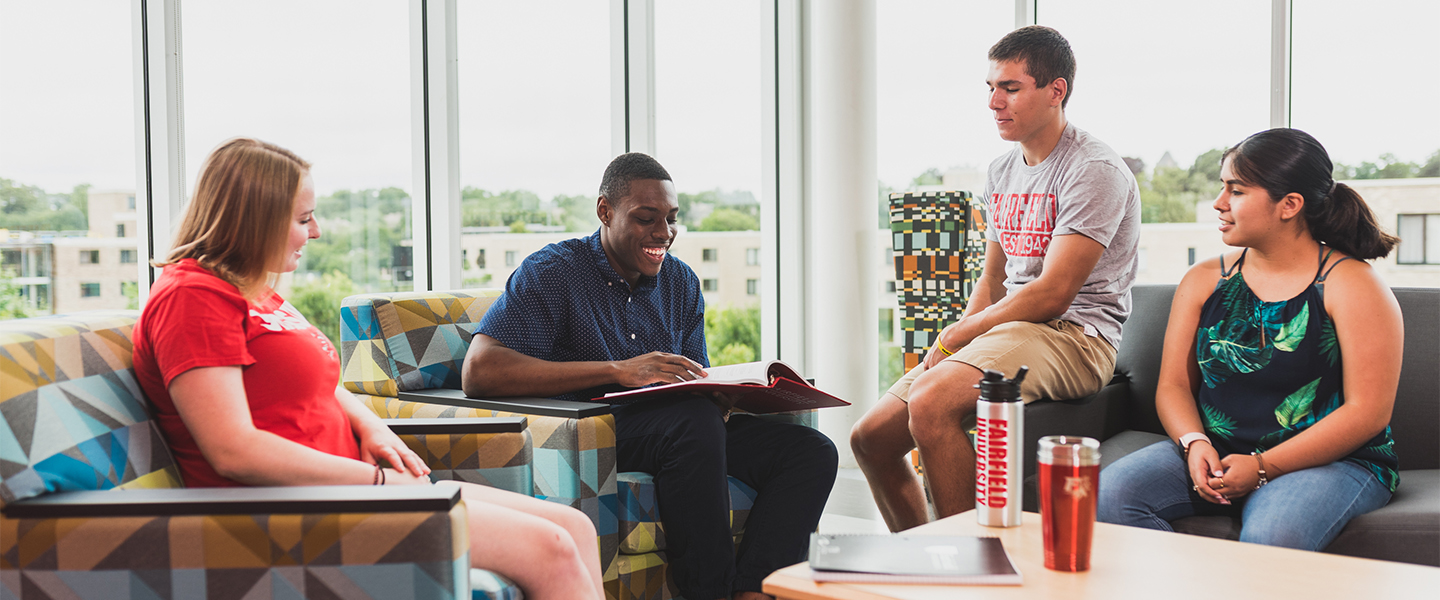Problem-Solving
Identify, formulate, and solve complex engineering problems by applying principles of engineering, science, and mathematics.
The School of Engineering & Computing's Biomedical Engineering curriculum provides both breadth and depth across a range of engineering domains such as mechanical, electrical, computer, and software engineering. This program prepares graduates to have an understanding of biology and physiology, as well as the capability to apply advanced mathematics, science, and engineering concepts to solve problems at the interface of engineering and biology.
Fairfield students are taught how to make measurements on—and interpret data from – living systems. They also learn how to address problems associated with the interaction between living and non-living materials and systems. The biomedical engineering curriculum blends theoretical knowledge with hands-on experiential learning, and culminates with an interdisciplinary team-based senior capstone design project.
Advanced courses in biomedical engineering further develop knowledge in the discipline, with a heavy emphasis on design assignments. Through elective courses, students have the option of specializing in a specific area of biomedical engineering. Students on a pre-medicine track can also prepare for medical school entrance by taking their elective courses in psychology, sociology, organic chemistry, biology and biochemistry.

Chair, Electrical and Biomedical Engineering
Associate Professor
x2424
P: (203) 254-4100
F: (203) 254-4199
admis@fairfield.edu

Fairfield University’s four-year Bachelor of Science program in biomedical engineering is accredited by the Engineering Accreditation Commission of ABET, https://www.abet.org, under the General Criteria and the Bioengineering and Biomedical and Similarly Named Engineering Program Criteria.
The Program Educational Objectives are broad statements that describe what alumni do within a few years following graduation. The biomedical engineering program is committed to graduating engineers who within a few years of their graduation are expected to:
Utilize their interdisciplinary training to have successful careers in industry, research and development and in regulatory agencies, academia, or clinical work.
Demonstrate the organizational, leadership, and communication skills to achieve success in their chosen careers and make reasoned decisions based on a respect for diversity, and welcome it as a source for creativity, innovation, and inclusive collaboration.
Employ critical thinking and problem-solving skills to support interdisciplinary teams that may include physicians, nurses, molecular biologists, physiologists, other engineers, and business professionals.
Utilize life-long learning skills and the ethical tools for successful adaptation to the rapidly changing field of Biomedical Engineering.
Build upon their sound training in mathematics, biological sciences, the liberal arts, and engineering to facilitate successful pursuit of advanced degrees in medicine, law, business, engineering, or related fields.
Biomedical Engineering students will graduate from the program with the ability to perform and execute the following:
1
Problem-Solving
Identify, formulate, and solve complex engineering problems by applying principles of engineering, science, and mathematics.
2
Produce Solutions
Apply engineering design to produce solutions that meet specified needs with consideration of public health, safety, and welfare, as well as global, cultural, social, environmental, and economic factors.
3
Communicate
Communicate effectively with a range of audiences.
4
Recognize
Recognize ethical and professional responsibilities in engineering situations and make informed judgments, which must consider the impact of engineering solutions in global, economic, environmental, and societal contexts.
5
Cooperate & Collaborate
Function effectively on a team whose members together provide leadership, create a collaborative and inclusive environment, establish goals, plan tasks, and meet objectives.
6
Draw Conclusions
Develop and conduct appropriate experimentation, analyze and interpret data, and use engineering judgment to draw conclusions.
7
Apply Knowledge
Acquire and apply new knowledge as needed, using appropriate learning strategies.
| Fall 2017 Enrollment: | 2017 Graduates: |
| 35 | 0 |
| Fall 2018 Enrollment | 2018 Graduates |
| 41 | 5 |
| Fall 2019 Enrollment | 2019 Graduates |
| 41 | 5 |
| Fall 2020 Enrollment | 2020 Graduates |
| 35 | 7 |
| Fall 2021 Enrollment | 2021 Graduates |
| 36 | 7 |
| Fall 2022 Enrollment | 2022 Graduates |
| 32 | 11 |
| Fall 2023 Enrollment | 2023 Graduates |
| 43 | 9 |
The biomedical engineering curriculum provides both breadth and depth across the range of engineering domains such as mechanical, electrical, computer or software engineering. The program prepares graduates to have an understanding of biology and physiology, as well as the capability to apply advanced mathematics, science and engineering to solve the problems at the interface of engineering and biology. The biomedical engineering curriculum prepares graduates with the ability to make measurements on and interpret data from living systems and to address the problems associated with the interaction between living and non-living materials and systems. The biomedical engineering curriculum blends theoretical knowledge with hands-on experiential learning that culminates with a year-long, interdisciplinary team-based capstone design project.
Required Courses
| Major Requirements |
|---|
| Digital Design I and Digital Design I Lab |
| Fundamentals of Programming |
| Introduction to Electric Circuits |
| Electric Circuits Lab |
| Embedded Microcontrollers and Embedded Microcontrollers Lab |
| Fundamentals of Engineering |
| Engineering Graphics I |
| Mathematical Analysis |
| Materials Science |
| Biomechanics |
| Biomedical Instrumentation |
| Biomedical Signal Processing |
| Biomedical Imaging |
| Biomedical Visualization |
| Senior Design Project I |
| Senior Design Project II |
| Natural Science Requirements |
|---|
| One (1) Biology elective with lab |
| General Chemistry I and General Chemistry I Lab |
| General Chemistry II and General Chemistry II Lab |
| Organic Chemistry I and Organic Chemistry I Lab |
| Calculus I for Chemistry, Engineering, and Physics Majors |
| Calculus II for Chemistry, Engineering, and Physics Majors |
| Calculus III for Chemistry, Engineering, and Physics Majors |
| Ordinary Differential Equations |
| General Physics I and General Physics I Lab |
| General Physics II and General Physics II Lab |
Visit our our academic catalog for detailed course descriptions and more information.
In keeping with the mission of Fairfield University’s Jesuit values, specifically the concept of men and women for others, the School of Engineering & Computing's inspires students to become leaders of integrity within the industry. Through their comprehensive curriculum, students are given opportunities to conduct innovative, in-depth research with faculty mentors. This hallmark of a solid educational experience offers students a chance to put their academic skills to the test, explore their passions, and make a difference.
Under the leadership of faculty mentor Isaac Macwan, PhD, biomedical engineering majors Jenna Madigan ’22 and Jack Devlin ’22 launched a research project that focuses on the impact of the human protein MutSbeta, which is essential in repairing incorrect sequences in DNA after replication. The overall role of MutSbeta is known but our goal is to examine the initial interactions when the DNA and protein first come in contact. By simulating the interactions as they would happen in our cells with molecular dynamics, we hope to learn about this system through analysis of interaction energies, changes in protein structure, and more. With this information, the students will draw conclusions about the implications of defective MutSbeta, which causes human Lynch Syndrome and colorectal cancer.
One of the root causes of Alzheimer’s disease is the aggregation of amyloid beta protein in the brain. In Isabella Wolson’s ’22 project, the aggregation of several amyloid beta proteins are simulated alone and then in the presence of a nanomaterial, graphene oxide. The simulations are then examined to determine if nanomaterials should be pursued as a potential therapeutic agent in de-clumping the Alzheimer’s causing clusters.
In their research project, Andrey Zaznaev and Ky Duyen Le ’21 worked alongside faculty mentor Isaac Macwan, PhD to study how molecules move and behave in biological system through molecular dynamics simulations. The specific focus is on understanding how graphene oxide, a nanoparticle, interacts with NDPK, a protein responsible for many processes in a human body, including the functioning of the heart. Heart failure results from the interactions of an inferior NDPK protein with another protein called G protein that inhibits the beating of the heart resulting in cardiac infarction. It is expected that the results of this work will show theoretical potential for utilizing graphene oxide material blocking such interactions to be a possible strategy against heart failure.
Getting involved in faculty-mentored undergraduate research is a great way to supplement course work and gives students the chance to explore a topic at the cutting-edge of the biomedical engineering discipline. To learn more meet with your academic advisor to discuss your research interest.

Biomedical Engineering Design Teams Take Top Awards at NEBEC Conference
Two senior biomedical engineering teams each won first place in different zones at the Northeastern Bioengineering Conference (NEBEC) held at Drexel University in Philadelphia.
The School of Engineering aims to graduate students with leading-edge engineering skills and additional competencies in oral and written communications and critical thinking who possess:
Fairfield's engineering programs graduate liberally educated engineers equipped with knowledge and experiential skills so they may successfully enter the mainstream of industrial/manufacturing activity, education, or government service, or to continue with postgraduate studies. Our close interactions with industry enable employment of our graduates in all sectors of industry, government, and academe.
Learn how Fairfield's Career Services can support your post-graduate goals, and how our tight-knit alumni network can build career and mentoring opportunities that last a lifetime.

As a Jesuit, Catholic university, Fairfield is dedicated to diversity and inclusion; to radical hospitality in service of racial, social, and economic justice.
There are two types of internships students can attain: internships for academic credit and non-credit internships. Internships for academic credit must be approved by faculty and are connected to an academic course. Some departments have lists of available for-credit internships and some may approve internships that you find on your own as well.
We invite you to view the School of Engineering Update, a year in review of School of Engineering News.
The School of Engineering faculty are a community of leading-edge scholars who are dedicated to their students, research, and teach with passion. If you have an interest in engineering — no matter the focus — our exceptional faculty will get you on the path to success.